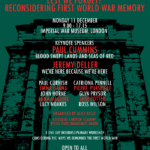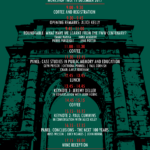Rome 12-14 November 2018
This workshop will adopt an international comparative approach to study the effects of the Great War on institutionalized Christian religion (eg. Catholic, Protestant and Orthodox churches) in the immediate aftermath of the war. How did churches perceive the war and the immediate post-war period? What was the impact on Christian theology and culture? How did churches interact with the belligerent nation states and how did they cope with the changing (geo)political situation after the war? What were their ecclesiological, pastoral and liturgical challenges after the armistices? Did they adopt a defensive stance towards secularization, or did they intensify their dialogue with modernity? To what extent did they move towards a pastoral policy of social healing and offer a welcome to Christian pacifism and ecumenism?
The workshop wishes to stimulate innovative research on the interaction between religion and society in the difficult years between the end of the war and the mid-1920s. It explicitly adopts an interdenominational and international comparative perspective, stimulating a multifaceted and in-depth analysis, with due attention to methodological questions. It wants to combine the results of different fields of historical research: the history of churches and religions, cultural, intellectual, social and political history, etc. Although well-chosen case-studies with a focus on, for instance, particular regional/national contexts, or specific denominations, organizations or individuals can surely offer valuable insights, the organizers especially aim for papers that deal with the issues concerned from a broad comparative perspective. They should contribute to a better understanding of the changing nature of religious cultures across Europe. Although the workshop will deal in particular with the immediate post-war years (1918-mid 1920s), contributors are encouraged to adopt a broader chronological perspective of continuity and discontinuity in evaluating the results of their analysis for the period at hand.
The workshop will bring together senior academics as well as junior doctoral researchers in a scientific dialogue on the subject. Introductory keynote lectures from established researchers and thematic sessions will structure the multi-layered perspective as well as the comparative baseline.
More information here.
Practical
The main conference and discussion language will be English, but papers in other languages are accepted as well. In that case, the organizers do ask for an English summary and an English or bilingual PowerPoint or other presentation.
Proposals should be submitted as PDF documents and should contain the following: a clear title of the proposed paper; a summary (max. 500 words), outlining the paper’s goals, methodology and source materials; CV(s) of author(s), with contact information, position and institutional affiliation.
These abstracts should be attached and emailed to the work-shop secretary (kristien.suenens@kadoc.kuleuven.be) no later than 1 February 2018. You should receive a confirmation of proposal receipt within 48 hours. The proposals will be evaluated and selected by the Scientific Committee based on topic relevance, innovativeness and the degree to which the proposal answers the call. Notification of the evaluation will occur no later than 1 April 2018. Full papers should be sent to the workshop organizers no later than 1 October 2018.


